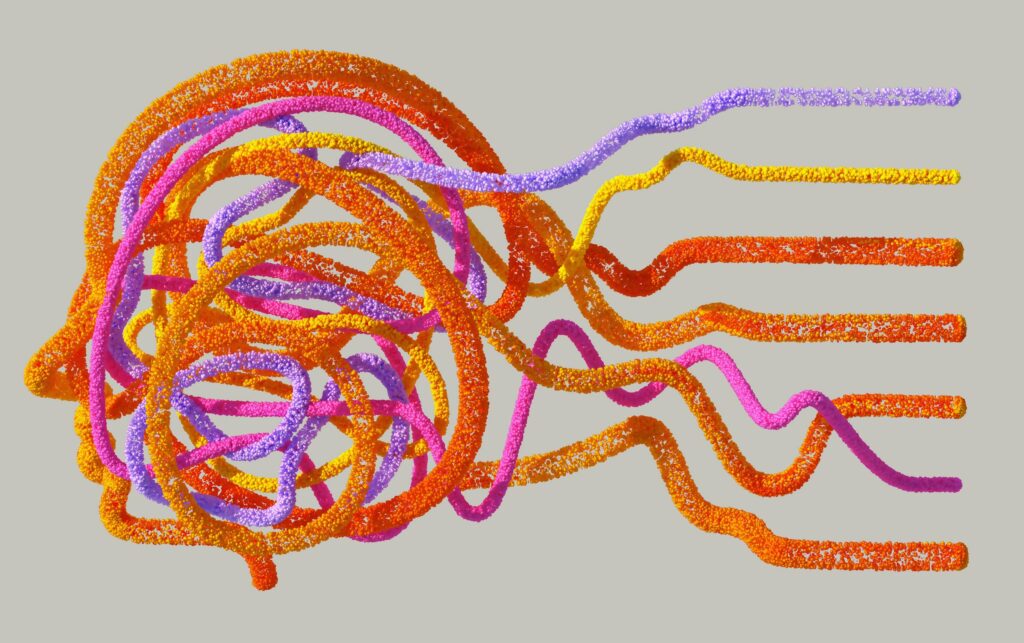News Team member Stephanie Oehler describes how the online "trad-wife" aesthetic fuels the flames of the anti-vaccination movement during the second-largest measles outbreak of the 21st century.
Could Psychedelic Drugs Provide Relief for Mental Health Disorders?
By Lauryn Palacio
Psychedelics are a class of drugs known for their ability to alter the mind. Recently, research in clinical psychology has explored the possibility that psychedelics may be useful for the treatment of mental health disorders. Benefits of psychedelic use include an increased sense of empathy, positive improvements in social behavior, and overall optimistic mindsets. Few researchers, however, have asked how effective these drugs are at treating mental health issues when users feel stigmatized.
Stigma is both a cause and consequence of illicit drug use. Shame and guilt felt towards bad mental health prevents some people from seeking professional healthcare. The need to hide their struggle with mental health can cause some people to self-medicate with drugs like psychedelics. Others have a renewed sense of self after taking psychedelics and are more inclined to seek professional care for their mental wellbeing. This happens because using these drugs gives them peace; they no longer feel shame or guilt for needing support for their mental health. So which way is it? Does stigma cause people to use drugs or does using drugs help reduce stigma? This is the question Dr. Sean M. Viña aims to answer in his research.
Viña, a sociologist at the University of the Incarnate Word, San Antonio, Texas, studies the relationship between stigma, drug use, and mental healthcare. In a recent study, published in the journal Stigma and Health, he found that people who used psychedelics were more likely to use some form of psychiatric care than those who did not. He also found, however, that stigma made people less likely to use medication. This stigma is made worse by psychedelics. These results may seem conflicting, however, the key to understanding them is context.
“There’s no doubt that the drugs do these things,” Viña says. “It’s just this very one-to-one thing in a very controlled environment, but we know these drugs are not being used in this way and it’s a much bigger, broader social world [where] these are being consumed.”

Existing research supports the idea that psychedelics can alleviate symptoms of mental health conditions such as depression, anxiety, and PTSD. While they are proven to be effective when used in a clinical setting under the supervision of a psychiatric professional, there is much to be learned about these drugs when used elsewhere. Psychedelics used recreationally create different experiences in people than those used in controlled environments.
Psychedelics are sometimes used in medical clinics; however, it is more common for them to be consumed in group settings or alongside other substances such as alcohol. The results are conflicting because there are many other social factors – age, gender, marital status, income – that impact how well these drugs work. Stigmatization towards mental health care may encourage someone to use psychedelics, either in secret or as a socially accepted method to cope.
The study analyzed survey responses taken from the National Survey on Drug Use and Health given between 2008 and 2019. The researchers asked participants about their psychedelic use, perceived stigma, and how often they saw a healthcare provider. Researchers took this data and analyzed these answers alongside demographic factors. Age, income, race, and marital status influenced participant responses. Responses were excluded from the study if the participant used other illicit substances, such as cocaine, weed, or heroin, alongside psychedelics.
“That’s the challenge of studies. You don’t know which way the arrow of causality is going on this sort of stuff,” says Dr. Charles Raison, a professor at University of Wisconsin, Madison and adjunct professor at Emory University, and an expert in psilocybin, a psychedelic being studied for use in clinical settings.
Research on psychedelics often has inconclusive results because the relationship between these drugs and other social factors is cyclical. It is difficult to account for all factors that impact how well these drugs work in a clinical trial as people live complex lives. As scientists continue to learn more about the effects of psychedelics, they must keep in mind these drugs are not created to a standard – no two people are receiving the same dose. Psychedelics as a drug class encompasses many different drugs, all of which have different origins and importance in different social groups. Current studies are unable to analyze the effects of personality type and religious beliefs on psychedelic experiences, two factors that influence a person’s attitude towards illicit drugs.
Policy makers, medical practitioners, and recreational users should be aware of the complex nature of drug use for mental health. The time, place, and purpose a psychedelic is taken for can determine how positive or negative the experience is for the user. It is growing increasingly important that researchers attempt to understand the cause-and-effect relationship between stigma and drug as legalization efforts take place across the United States. In response to legalization efforts, Viña says, “There are ramifications for this, not just for health, but for other things that policymakers aren’t thinking about.”
Steps are being taken to add more inclusive questions to the National Survey on Drug Use and Health. In future studies, participants will be asked how often they use psychedelics and the reason they use them. More research is needed to better understand how social context and setting influence a person’s experience with these drugs. This ongoing conversation around mental health and drug use is important for providing equitable mental healthcare as
the choice to use – or not use- psychedelics is rooted in personal beliefs and societal expectations.
